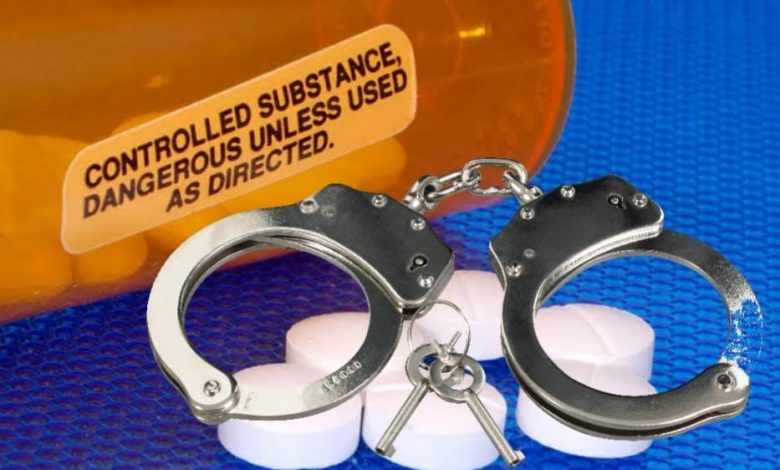Is Trazodone A Controlled Substance?

Controlled substances refer to a drug or other substance which includes illegal and prescription drugs that are regulated by the Controlled Substances Act (CSA) in the United States. Recognizing the potential that certain medications have for abuse and dependence, Congress enacted the CSA as part of the Comprehensive Drug Abuse Prevention and Control Act of 1970.
This act categorizes all substances that are regulated under federal law into “schedules,” depending on how potentially dangerous they are. The schedule the drug is placed under depends on its medical use, its potential for abuse, and its safety or how easily people become dependent on it.
Careful consideration has gone into this categorization. The control of drugs through law exists to protect people from the harm that these drugs can do. It is based on research from many different sources into the potential harmfulness of the drug, both to individuals and to society.
What is Trazodone?
Trazodone is a prescription medication approved for use by the Food and Drug Administration (FDA) as an antidepressant. The medication works in multiple ways in your body. One of its actions is to regulate the neurotransmitter serotonin, which helps brain cells communicate with each other and influences many activities such as sleep, thoughts, mood, appetite, and behavior.
Even at lower doses, trazodone can cause you to feel relaxed, tired, and sleepy. It does this by blocking chemicals in the brain that interact with serotonin and other neurotransmitters, such as 5-HT2A, alpha1 adrenergic receptors, and H1 histamine receptors. This effect may be one of the main reasons trazodone works as a sleep aid.
Though the FDA has approved trazodone for use as a treatment for depression in adults, for many years, doctors have also prescribed it as a sleep aid.
The FDA approves medications to treat specific conditions based on clinical trials. When doctors prescribe the medicine for conditions other than what was approved by the FDA, it is known as off-label prescribing.
Off-label use of a medication is a widespread practice. Twenty percent of medications are prescribed off-label. Physicians can prescribe medications off-label based on their experience and judgment. Other off-label uses of trazodone include the treatment of bulimia, benzodiazepine/alcohol dependence, fibromyalgia, central nervous system degenerative diseases (behavioral disorders in dementia and other organic disorders), schizophrenia, chronic pain disease and diabetic neuropathy, sexual dysfunction.
Is Trazodone A Controlled Substance?
No, trazodone is not a controlled substance and it is not addictive. However, like many antidepressants, trazodone has been issued a “Black Box Warning” by the FDA. Taking trazodone has increased the risk of suicidal thoughts and behaviors in pediatric and young adult patients.
People taking this medication are closely monitored for worsening symptoms and the emergence of suicidal thoughts and behaviors. Trazodone is not approved for use in pediatric patients.
There have been reports of overdose with trazodone use. These risks are higher with drinking alcohol, taking benzodiazepines, and other central nervous system depressant drugs that can slow your breathing and reactions.
Drug overdose can be fatal. If you suspect you have taken too much trazodone or in case of overdose, call the poison control helpline at 1-800-222-1222. Information is also available online at https://www.poisonhelp.org/help. If the victim has collapsed, had a seizure, has trouble breathing, or can’t be awakened, immediately call emergency services at 911.
Symptoms of overdose may include:
• changes in heartbeat
• difficulty breathing
• drowsiness
• painful erection that does not go away
• seizures
• vomiting.
What are the side effects of Trazodone?
Trazodone may cause side effects. Tell your doctor if any of these symptoms are severe or do not go away:
• bad taste in the mouth
• changes in appetite or weight
• changes in sexual desire or ability
• confusion
• constipation
• decreased ability to concentrate or remember things
• decreased coordination
• diarrhea
• dizziness or lightheadedness
• dry mouth
• feeling unsteady when walking
• headache
• muscle pain
• nausea
• nervousness
• nightmares
• numbness, burning or tingling in the arms, legs, hands, or feet
• rash
• ringing in ears
• sweating
• tired, red, or itchy eyes
• uncontrollable shaking of a part of the body
• vomiting
• weakness or tiredness
Some side effects can be serious. If you experience any of the following symptoms, call your doctor immediately or get emergency medical treatment:
• chest pain
• fainting
• fast, pounding, or irregular heartbeat
• loss of consciousness (coma)
• seizures
• unusual bruising or bleeding
Trazodone can cause painful, long-lasting erections in males. In some cases emergency and/or surgical treatment has been required and, in some of these cases, permanent damage has occurred. Talk to your doctor about the risk of taking trazodone.
Trazodone may cause other side effects. Call your doctor if you have any unusual problems while taking this medication.
If you experience a serious side effect, you or your doctor may send a report to the Food and Drug Administration’s (FDA) MedWatch Adverse Event Reporting program online (http://www.fda.gov/Safety/MedWatch) or by phone (1-800-332-1088).




